Professional colleges: The roadmap for a new academic year
Will 2021 see the return of students back in the colleges or will hybrid learning change the face of the education system?
/wp-content/uploads/2021/08/Education1.jpg)
2021 is being touted as one of the toughest years for students. As 2020 saw the rise of several e-learning modules and technology-based learning became the new normal, one of the biggest questions in 2021 was whether professional colleges will function offline? Even as the country reels from a devastating Covid-19 second wave and prepares for the third wave, the uncertainty surrounding educational institutions remains. While many colleges have adopted the ‘wait and watch’ policy, students are eager and can’t wait to get back to college for offline classes. Even though the transition from offline to online was not a cakewalk for many teachers and students, many states have begun offline classes on campus or are following a hybrid model for the upcoming academic year. Following a steady decline in the number of COVID-19 cases, Karnataka, for example, kick-started offline classes for the degree, postgraduate, engineering, and polytechnic colleges from last month, with many colleges adopting a hybrid method for their classes. In some states, like Kerala where the number of COVID-19 cases continues to be on the rise, restrictions continue for educational institutions. In this special feature, we take a look at what measures are being taken to welcome students back on campus, what is the way forward and more…
Vaccination a must for students attending offline classes?
Apart from Karnataka, states like Telangana, Himachal Pradesh and Bihar too eased up on the restrictions in the past few days with Maharashtra joining the bandwagon recently and allowed educational institutions to conduct offline classes. However, this comes with a set of Standard Operating Procedures (SOP) that all educational institutions have to follow. While wearing a mask and sanitization on regular basis is a given, many colleges are also ensuring that their faculty, staff and even students are fully vaccinated. In Hyderabad, some colleges conducted free vaccination drives for students and faculty members with an aim to fully vaccinate them before reopening colleges for offline classes. Similarly in Srinagar as well, vaccination drives were held as higher educational institutions reopened earlier this month
Hybrid model to continue, labs in a staggered manner
For many students, who are either back in their hometowns or are not able to attend offline classes, online classes will still be an option. Experts feel that if online classes continue, it will only get better as teachers and college administrations are more equipped now than they were last year. Though the charm of offline classes is irreplaceable, teaching professionals agree that online classes are the best way to continue the academic year as everyone’s safety is a priority. Dr. Pritee Saxena, Director, ICFAI Business School (IBS), Mumbai, says, “We firmly feel that education at the cost of safety is not a prudent option therefore we will open the campus as per government directives with all safety measures in place. We might still offer a hybrid campus to avoid crowding of lecture halls and other facilities. We will allow only those who are fully vaccinated to the campus. Masks and use of sanitisers will be made mandatory to ensure the safety of those who come to the campus.” Dr. Saxena adds, “The interactions have moved digitally using a variety of platforms and apps in addition to our in-house model-based LMS QUICFORCE. We believe that technology in learning is as important as the technology of teaching. This is possible because of the adaptation made to the Institute design, enabling all classrooms to be smart classrooms having smart boards and wi-fi with cameras and other sound equipment geared to deliver both online as well as offline classes.”
Meanwhile, colleges will have to come up with a new lab schedule so that students can utilize the facilities with utmost safety. Among the many methods adopted by some colleges, the most common is staggered batches or alternate days of labs for students, thereby reducing the risk of exposure.

Mental health and wellness a key area of focus for colleges
Recently, the Delhi High Court issued a notice to the Delhi government in response to a petition seeking the implementation of the Mental Healthcare Act 2017 at schools and colleges for the benefit of the students. Given the impact the pandemic has left on everyone, mental health and overall wellness has become a key area of discussion. The pandemic left many feeling lonely, frustrated and angry with anxiety levels through the roof and this has pushed college administrations to be well prepared for all kinds of challenges. In fact, some official authorities across the country feel that reopening of colleges is imperative for students’ and faculty members’ better mental health.
Educational institutions are now slowly taking into account how the pandemic may have affected everyone and are coming up with new concepts related to the pandemic. In accordance to the National Education Policy (NEP), some colleges have courses that talk about concepts related to the pandemic, which include teaching about mental health and more.
Placement drives and cultural fests may continue online!
Last year saw a rise in the number of campus placements going online. Though the numbers of placement drives were less compared to pre-COVID times, for many institutions having online placement drives was a huge boost. Similarly, college fests as well made a shift to the online. The pandemic did prove to be a dampener for college fests, but it didn’t deter students from taking a break from their online classes and having fun. However, if predictions about the third wave come true, the online trend for many events in colleges may continue even for the coming academic year as students feel that online fests are better than ‘no fests.’
Challenges in 2021 and the way forward…
One of the biggest challenges that remains is the ever-evolving online teaching tools that the teachers have to use. Though some teachers feel less connected to students while teaching online, many feel it was long overdue that teachers learned the nuances of e-learning tools. With more than a year of online classes, college administrations too are ensuring that the teaching staff is well-versed in this sphere. “The student-faculty interactions have transcended geographical, physical, and temporal boundaries and resulted in co-creating of learning environments customized to suit the pace and rate of course content delivery. The two years of online classes has equipped the faculty with abundance of asynchronous teaching content along with the synchronous, and this will certainly come handy in enriching the learning experience of students when they get back on campus with full force to learn and fulfill their career goals and achievements,” Dr. Saxena adds.
However, concerns surrounding teachers being overworked and overburdened have been discussed as well in the past few months. If the hybrid model is the way forward, it may be too taxing for the teaching staff to plan for both offline and online classes. Another challenge for several colleges is the implementation of the NEP for the upcoming academic year 2021- 2022. As educators welcomed the implementation of NEP and termed it as a game-changer, several academicians await to see the ground reality. Several colleges that are eyeing to reopen campuses will have to rejig courses keeping in mind the NEP.
In the midst of all this, what remains a top priority is the safety of teachers and students and only time will tell how prepared professional colleges are to seamlessly conduct classes without hiccups in the coming months…
Reva Reigns Supreme In Product Innovation
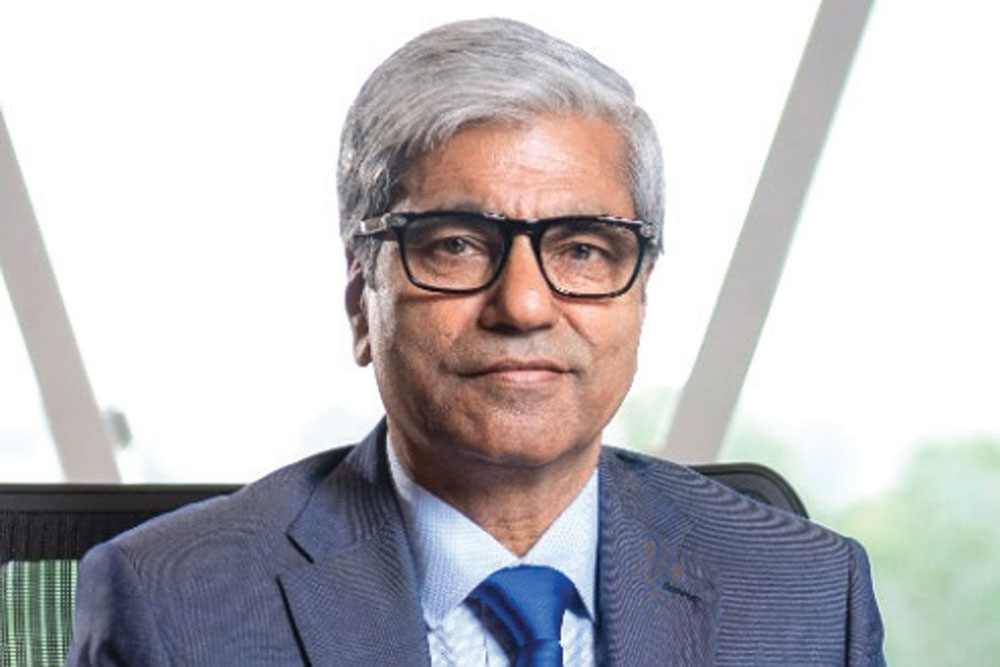
Reva Reigns Supreme In Product Innovation In 2020, acting upon the call for AatmaNirbhar Bharat, REVA University, embarked on a journey of discovery and self-reliance. With a dynamic culture that supports product innovation, REVA set out to conceptualize, ideate, and execute products that were timely and would help those in need in the middle of the pandemic.
As a result, more than 50 products were developed amid the pandemic, some even patented and granted patents. The key contributions are JeevaSetu, Smart Social Distance Alarm, Foot Operated Hydraulic Lift, Contactless Temperature Screening, Treadle Pump for farmers, Pedal-operated Water Pump and Filtering System, Smart LED Bulb, JeevaRakshak App, Triple-layered Masks, Touchless Taps, Touchless Elevator System, among several others.
For instance, JeevaSetu, a low-cost non-invasive, blower-based ventilator, played a crucial role during the second wave of the pandemic, when there was a scarcity of beds and ventilators in hospitals. REVA volunteers bridged the gap between need and supply and ensured JeevaSetu was delivered to resource-poor environments where there was high demand for medical supplies and equipment.
Another significant contribution has been the development of the Blood Point App, an exclusive app for information on blood availability, blood donors, and blood banks.
REVA’s journey in innovation is not only limited to products relating to the pandemic but has been successful in making key contributions to society at large. The School of Electrical and Electronics Engineering has developed a single-phase preventer, a circuit that plays a crucial role in extending the shelf life of 3-phase motors used by farmers in agricultural fields.
Developing Industry Ready Professionals
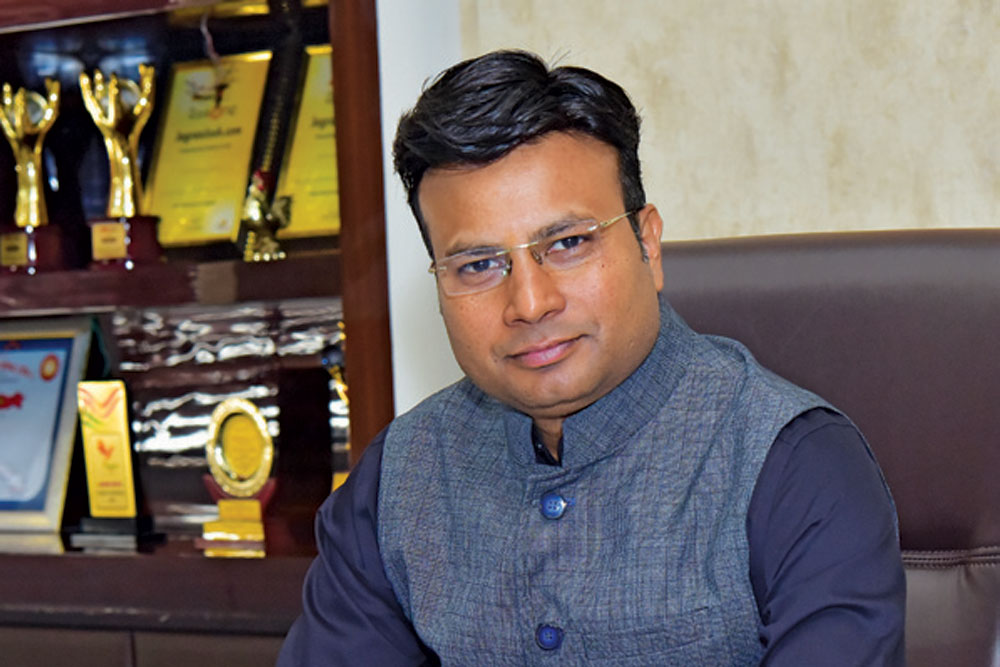
Sanskriti University has been ranked 8th among the emerging Universities of India and has been consistently ranked among the top universities of India. Sanskriti University has received a series of premier rankings and awards from leading ranking bodies and media houses.
Sanskriti University is strategically located on the National Highway with state of the art infrastructure duly enabled with excellent lab infrastructure in a lush green environment. Sanskriti University has been pioneering excellence in the domains of academics, research, innovation, IPR, publications and allied areas under the visionary leadership of its dynamic Chancellor Shri Sachin Gupta. The University has an illustrious team of advisors to focus on the professional governance of the University.
The Industry aligned, skill and research based curriculum at Sanskriti University are exceptional due to the special integration of life skills in all programmes offered by all the Schools of the University with an optimal focus on internship and experiential learning. The University has established multiple centres of excellence in Robotics, CNC Programming and allied areas. Sanskriti University has signed a series of MoUs with leading national and international organizations and Universities. Sanskriti University has MoU with MSMEPPDC Agra and has been organizing various entrepreneurship development programmes, Kisan Mela etc.
The faculty members are highly qualified, experienced and committed to delivering high quality academic delivery and research & development. The University has to its credits over 1500 published research papers and has filed over 450 patents.
The Placement Team has been delivering excellent results through a large number of summer internships and final placements. The Incubation Centre of the University provides seed funding to the students planning to start their own business ventures. Sanskriti University is proud of its alumni performing excellently in India and abroad.
Harnessing Technology, Enriching Lives
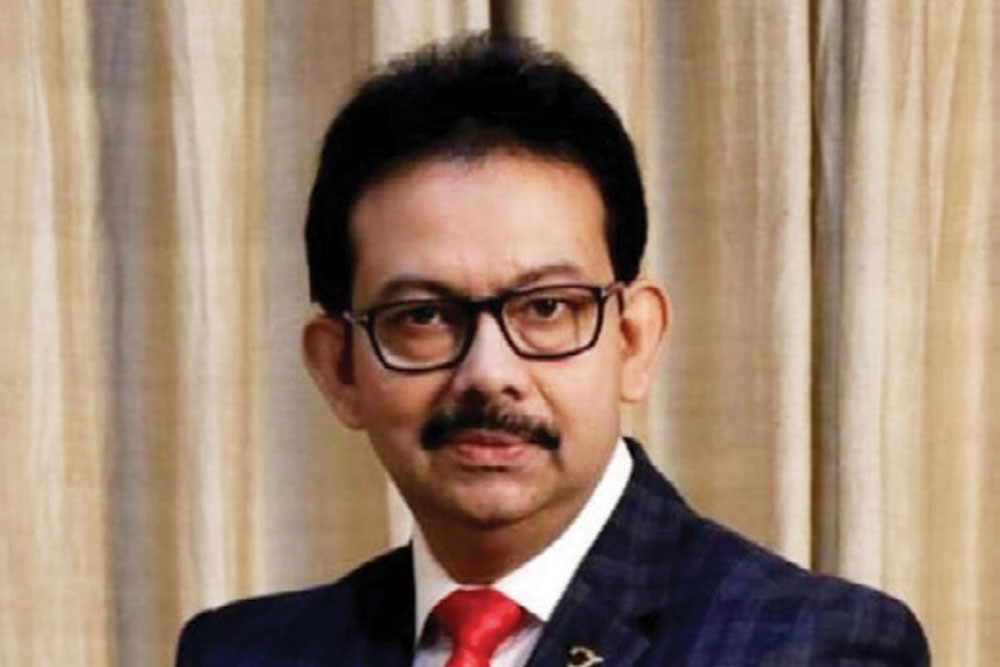
In the coming days, will classes take place offline or will it be a hybrid model? How equipped is the college to welcome students back on campus? What steps are being taken to ensure students and staffs’ safety?
Traditional offline classes in India are expected to be held as soon as educational institutions reopen. Until then, colleges will continue teaching in distance mode following the ‘blended learning’ method as well as the ‘hybrid’ model. In fact, students of Techno India Group colleges and Sister Nivedita University weren’t strangers to online teaching-learning mode. They were exposed to a Learning Management System devised in-house. Currently, we are working on an SOP to make sure all on-campus Covid-19 protocols are adhered to for everyone’s safety.
The past year has put the spotlight on mental health and related issues. What steps are being taken to ensure the wellbeing of the staff, faculty and students?
The mental health of our students, faculty members, non-academic staff, and their families has been a matter of concern. We created a dedicated portal where top psychologists provided online counselling. Our services were anonymous and free. We organized a webinar for children and a webinar that focused on the psychological wellbeing of “alienated children” and also organized a session for the elderly.
Professional colleges are all about hands-on experience, placement drives and more. What efforts were taken to ensure that students and their learning is not affected?
Because of the massive paradigm shift towards digital learning, students can now easily avail internship opportunities online as recruiters are now seeking talents on virtual platforms. Blended learning is removing barriers that have existed traditionally. Not only does it provide students with a greater degree of flexibility and freedom to choose how to learn, but it can also expand access to education too.
Creating future-ready Engineers and Professionals

Pimpri Chinchwad Education Trust (PCET) is a trusted brand since 1990 providing Quality Education from KG to Ph.D. It is spread across 65 Acres at three campuses. PCET is known across the country as one of the good Institutes for Placements, Research and Academics. PCET offers professional courses like Diploma, B.E, B.Tech, B.Voc, Architecture, MBA, PGDM, MCA, M.Tech, Ph.D., etc.
PCeT runs 4 engineering colleges: 1) Pimpri Chinchwad college of Engineering (PCCOE, Pune), 2) Pimpri Chinchwad college of Engineering & Research (PCCOE&R), Pune. 3) Nutan Maharashtra Institute of Engineering & Technology (NMIET), Pune, 4) Nutan College of Engineering & Research (NCER), Pune. Engineering colleges under PCET are known for Excellent Placements, Industry Institute Partnership, Disciplined Academics, Best Academic Results, Research & Innovation oriented education. PCET has a legacy of producing around 10+ University Toppers each year. Continuous encouragement to students & faculty for Innovation, Research & Development has resulted in 450+ Patents, 450+ Copyrights being filed; around 2,500+ Research papers are published by faculty & students.
Central placement cell: Around 500 companies conduct campus placements every year for PCET institutes. Central Placement Cell of PCET has placed many students in the last few years in reputed companies like VMware, Interactive Brokers, Josh Software, Value Labs, TIAA, Schlumberger, Accenture, Persistent, Altimetrik, KPIT, Wipro, Birlasoft and many more. Till date, many students not only from Maharashtra but from across the country got benefited by attending around 80-100 Pool Campus/ Off-campus recruitment drives at PCET colleges every year.
Industry & skill-based B.Tech & B.Voc courses: NUTAN COLLEGE OF ENGINEERING AND RESEARCH (NCER) is an Industry integrated Institute having the advantage of being at the location of Industrial Hub surrounded by around 2000 MNC’s. 140+ MOUs have been signed for industrial training such as Mahindra & Mahindra, TVS, Essar Steel and many more. Institute conducts mandatory Japanese and German Language courses.
Give Wings To Your Dream With A Degree In SRM
SRM Institute of Science and Technology (formerly known as SRM University) is accredited with the highest grade of A++ by NAAC and graded by UGC/MHRD as Category 1 university with 12 B status. All Engineering, Pharmacy, Architecture, and MBA programs are approved by AICTE and programs under Health Sciences are approved by various Statutory Bodies of India. SRMIST has secured the second rank in the Atal Ranking of Institutions on Innovation Achievements (ARIIA-2020). SRMIST is ranked globally by QS and rated by QS with ‘4 Star’ globally and awarded India centric QS IGAUGE Diamond rating.
SRMIST carries out cutting edge research in frontier areas with more than 238 government-funded research projects at an outlay of Rs.150 Crores. It has 23 both national and international patents also. The Sir C V Raman Research Park was built at an estimate of Rs.120 crores with state-of-the-art equipment to undertake research work.
The University functions from five campuses in the country, namely, at Kattankulathur in Chengalpattu district, Tamil Nadu, Ramapuram and Ramapuram Part (Vadapalani) in Chennai city, Modi Nagar, in NCR New Delhi, and at Tiruichirappalli (Irungalur).
SRMIST has over 50,000 students and nearly 3,300 faculty across all the campuses offering a wide range of undergraduate, postgraduate, and doctoral programs in Engineering, Management, Medicine and Health Sciences, Hotel Management, Science and Humanities, Agricultural Sciences and School of Law. The curriculum and syllabus are outcome based with specialized programs even at undergraduate level. The University offers 5 year M.Tech integrated programs under Engineering. At the Kattankulathur campus, Five engineering programs have been accredited by ABET, USA (www.abet.org), and another four Engineering programs by IET, UK. It has more than 1000 international students from 64 countries studying in various programs.
GNIOT Institute of Management Studies
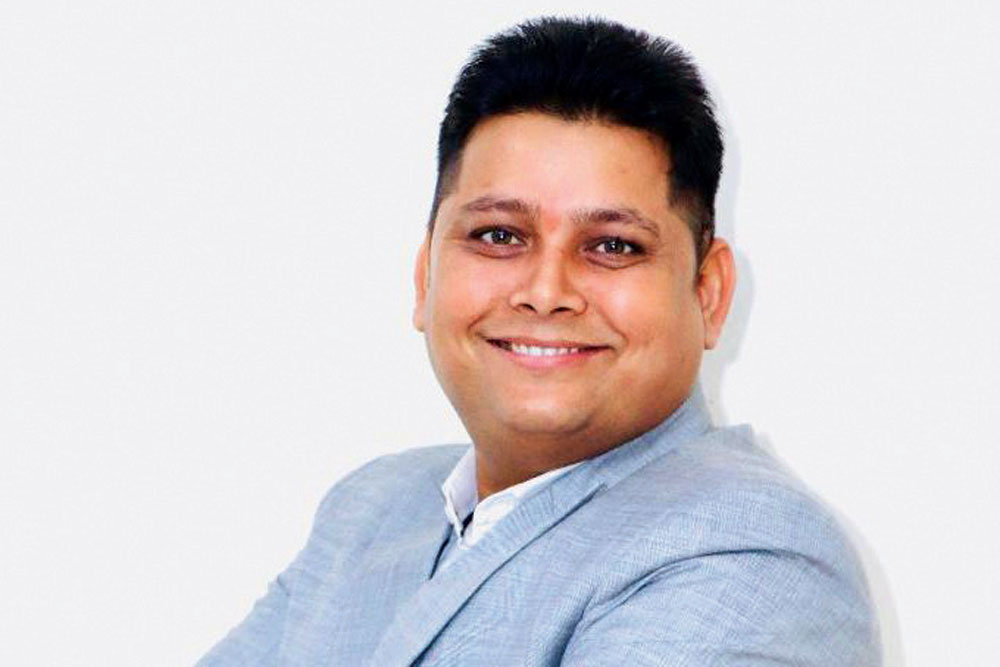
GNIOT Institute of Management Studies (GIMS) is one of the premier business schools. It is committed to academic excellence and developing socially responsible future leaders and entrepreneurs. We promote excellence in students by providing them personal coaching and mentoring to help them discover their hidden potential and unique talents. The ‘committed’ faculty members and industry ‘experts’ teach and guide students so that students learn and develop competencies required by the Digital VUCA world.
GIMS is an established and highly esteemed institution, where we maintain utmost academic standards, incorporated with the conduct of discipline, thereby achieving a remarkable and excellent percentage of results. We firmly believe that education is the key to a nation’s progress, with this we will take it as our bounded duty to provide the best academic training a student can possibly get. The institution endeavours to comfort the students with all the necessary knowledge and skills to become truly successful in the chosen field. In whatever career a student may choose to take, hard work and discipline are the sure roads towards success. And as an educational institution, we will support students in achieving those golden ambitions and also ensure that their stay in the college is meaningful and fruitful as well.
Students, you are about to cross a bridge in your life because college education is a turning point itself. It is in your hands to make sure that this bridge leads you towards success. The hard work of today is the triumph of the future. The time and effort you spend today are the deciding factors of your later years. As the CEO of this institution, I anticipate the full participation and cooperation of the students and parents to make it possible for us to transform those dreams to reality. And if there is any assistance that you might need, be it personal or professional, I shall always be willing to hear from you. I wish you all the best!
Building Naya Bharat Through NEP: 2020
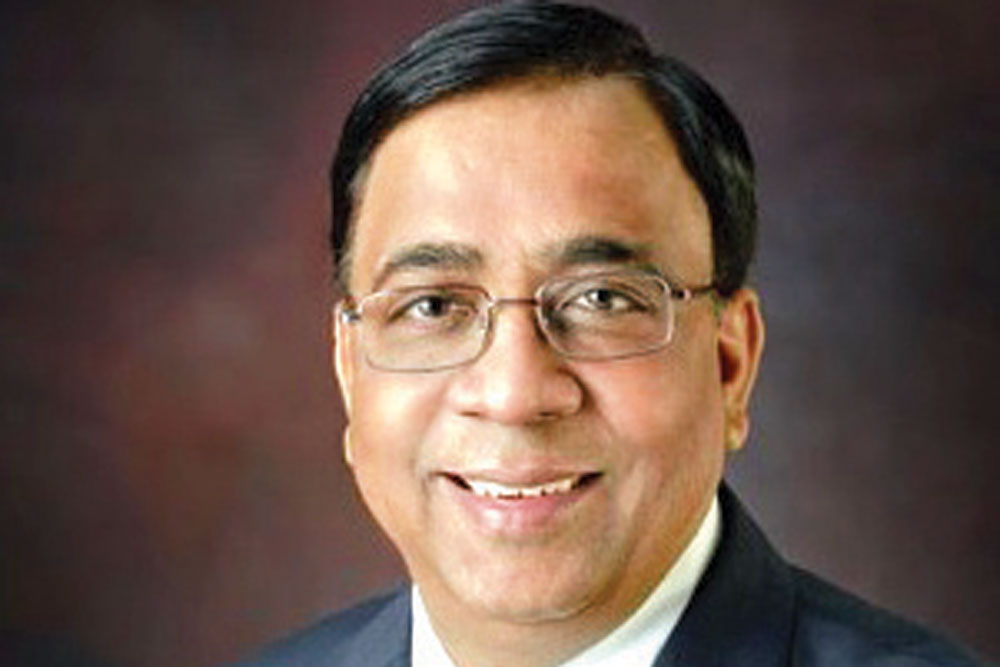
Education 4.0 is characterised by high-speed Internet, mobile technology, social media platforms to facilitate personalized learning anytime, anywhere and changing role of teachers as facilitators and mentors. The National Education Policy (NEP) 2020 envisions an education system deeprooted in Indian ethos and values aimed at transforming India into Naya Bharat. The key challenge before education systems is to revamp & replace prevalent educational system to emphasise upon Knowledge and inculcating 21st century skills viz., creativity, critical thinking, communication and collaboration and also to instil in students’attitudes, values and global citizenships. The NEP 2020 focuses upon outcome-based education with integration of value-based education and vocational education to impart employability and entrepreneurial skills in students. Effective implementation of NEP 2020 shall necessitate restructuring of academic programmes; academic subjects/courses, curriculum design & development, and use of pedagogical tools & techniques focussing upon on internships, mentorships to offer practical exposure to students. It calls for collaborative approach and sharing of Physical, Human and Technological (ICT) infrastructure and resources amongst Higher Education Institutions. We need to impart multidisciplinary education with ethical and social engagement of students. To conclude, student-centric approach, change in mindsets of all stakeholders, recognition of teachers, budgetary allocations, with proposed institutionalized restructuring & reforms in Governance and leadership supported with adoption of Public-Private Partnerships (PPP) model as well as total commitment and participation of faculty members with absolute commitment of education institutions would certainly help us to create & build ‘Naya Bharat’ in near future.
(A marketing initiative by Open Avenues)

/wp-content/uploads/2025/09/Cover_Tariff-scaled.gif)











More Columns
Young and Angry in Nepal Ullekh NP
Peter Navarro: Trump’s Rabble Rouser VK Shashikumar
Faith, Fury and a Poet: Why Javed Akhtar’s Critics Miss the Point Tufail Ahmad